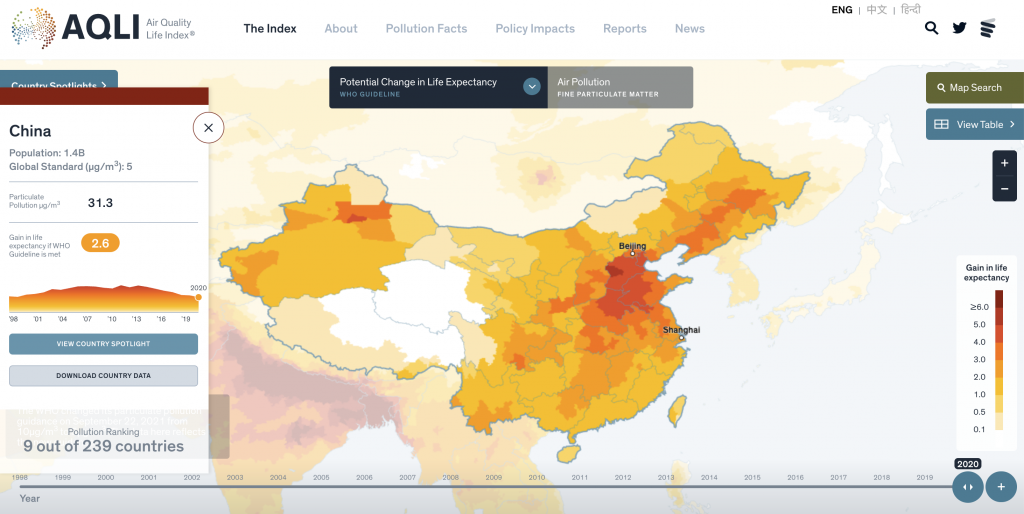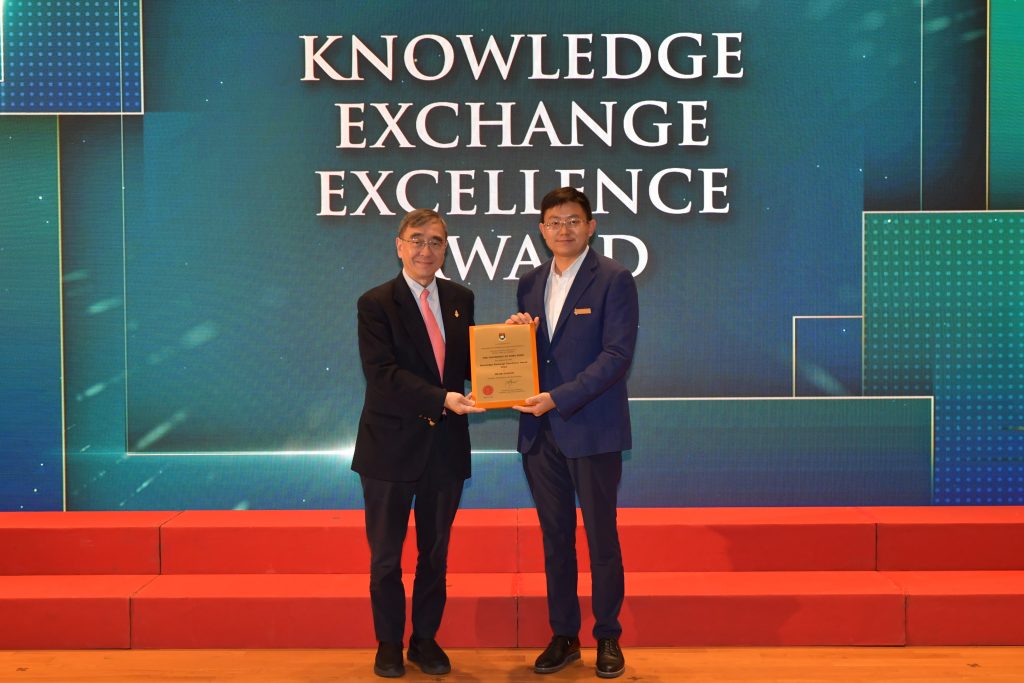May 2023 | Volume 24 No. 2
China’s Pollution Successes
Until 10 years ago, China’s approach to environmental pollution was to place it a distant second in the rush to accelerate economic development. But growing evidence of the health impact motivated a change of tune. A ‘war on pollution’ was launched in 2013. As environmental economist Dr He Guojun has shown, that war has been a success, offering lessons for other countries trying to reduce their own pollution.
Dr He has documented the impact of reducing pollution on both health and the environment. His first major study, conducted with the University of Chicago in 2017 (he is also the research director of the Energy Policy Institute at the University of Chicago [EPIC-China]), found definitive links between particulate matter (PM2.5) in the air and life expectancy. The team had compared data from north of the Huai River, where residents were receiving free or subsidised heating through coal-fired boilers, and south of the river where they were not. People north of the river had a reduction in lifespan of 3.1 years and a 37 per cent greater incidence of death from heart disease and stroke.
The findings contributed to a change in government policy to use natural gas or electricity wherever possible instead of coal. Dr He then did follow-up studies which showed that China’s PM2.5 level had fallen more than 40 per cent by 2021 and that the average Chinese citizen could add two years to their life expectancy if these pollution reductions were sustained.
“We also compared China with other countries and found that in most other developing countries, air quality has been deteriorating rather than improving over the past decade. China alone actually contributed to more than 75 per cent of the total global reduction in particulate matter in that period,” he said.
“Another interesting observation is that in the US, it took three decades for them to achieve a similar level of emission reductions through the Clean Air Act. China, in comparison, did all this in eight years.”

The Air Quality Life Index measures the loss in life years due to air pollution.
Reasons for improvements
Changes in policy have been a major contributor to China’s anti-pollution success, but so has improved technology, he said. Another study found that automated environmental monitoring networks reduced cheating behaviours by regulators (such as manipulating data) and improved the accuracy of air quality measurements. Furthermore, this improved accuracy motivated individuals to protect themselves as pollution problems became apparent, with immediate increases in sales of face masks and air filters on Taobao.
But Dr He felt more could be achieved. “Although the government might have the data, without public pressure, local regulators may be reluctant to enforce federal regulations,” he said.
That concern led to a nationwide field experiment that itself contributed to measurable reductions in air and water pollution.
The research team recruited volunteers in 2020 to monitor data from more than 25,000 major polluters. These polluters are required to have monitoring equipment installed and the resulting measurements are published online in real time. The volunteers monitored the data and were assigned to file either a public or private complaint when they came across violations. The study found that public appeals to regulators through social media substantially reduced both violations and pollution emissions, especially when the ‘like’ and ‘share’ buttons were activated.
Cost-effective option
“Our team filed more than 3,500 complaints that involved more than 2,000 companies. We found that when people complained on social media, the firms reduced emission violations by 60 per cent. At the same time, we also observed that air pollution reduced by 12 per cent and water pollution by four per cent,” Dr He said.
“There are quite large improvements that show the positive impact of citizen participation in environmental governance. This can be a cost-effective way of encouraging firms to comply with environmental standards.”
To underscore the benefits to human health of reduced pollution, Dr He also led a study that looked at how COVID-19 lockdowns in China inadvertently reduced non-COVID deaths due to cardio-respiratory failure, especially in heavily-polluted cities.
Dr He’s work has influenced policymakers in China and helped inform the rest of the world about the country’s anti-pollution successes. His work also contributed to the creation of an Air Quality Life Index by EPIC that applies his approach to understand the impact of PM2.5 pollution on life expectancy in the rest of the world. He has also disseminated his findings widely in media and to governments and organisations, including at a webinar that attracted more than 244,000 online participants. His achievements were honoured this year with the HKU Knowledge Exchange Excellence Award.

Dr He (right) receiving the Knowledge Exchange Excellence Award from Provost and Deputy Vice-Chancellor Professor Richard Wong.
Our team filed more than 3,500 complaints that involved more than 2,000 companies. We found that when people complained on social media, the firms reduced emission violations by 60 per cent.

DR HE GUOJUN

